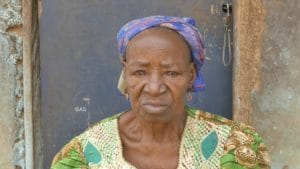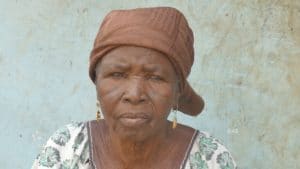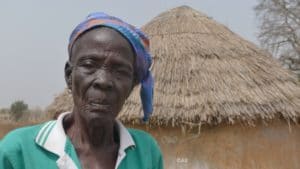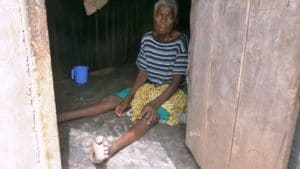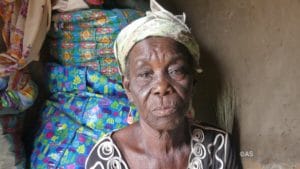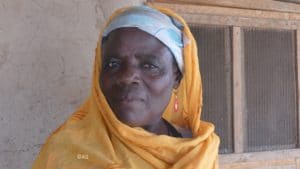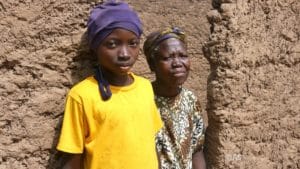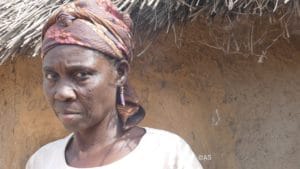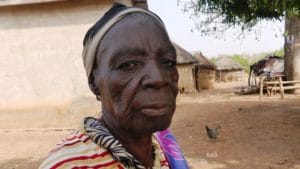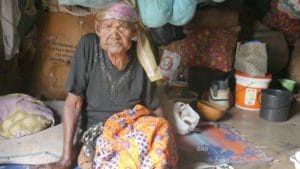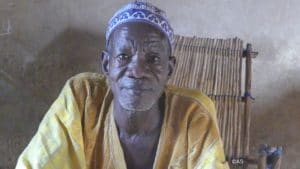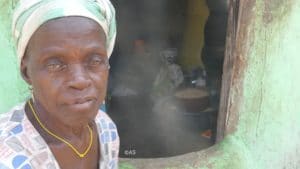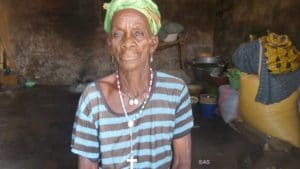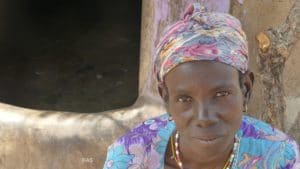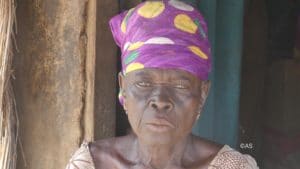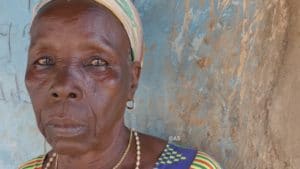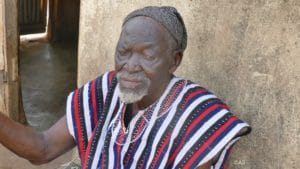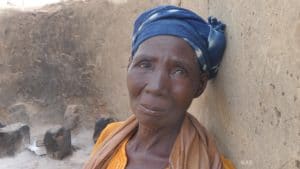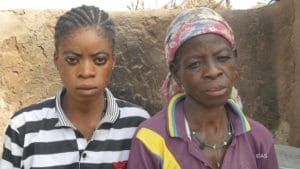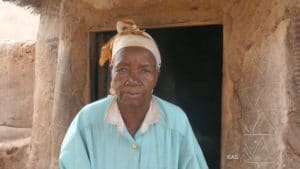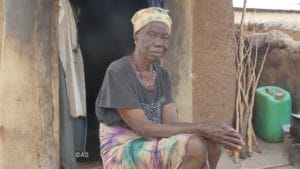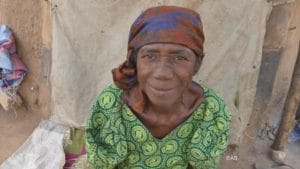Ghana, exorcisms and witch hunts. Stories from Witch Camps
(Tamale) – None of them remember their age, they all know how long they’ve been here. Or at least, they answer the question without delay. According to a perception of time that appears different between a before and an after. The first was a life of free women, the latter is a life of women banished from society.
They are witches, they say. They used their supernatural powers to harm, cause drought, divide families, kill, they say. That “they say” is enough to make them outcasts, to chase them away, to beat them and even lynch them. It has happened many times. A collective madness, which when it transpires, it has to discharge its energy before stopping. The belief in witchcraft remains strongly rooted in Northern Ghana.
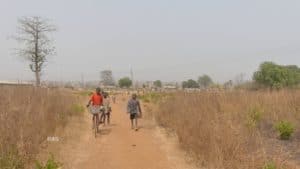
A belief linked to ignorance, prejudices, jealousy, even envy, and which – not surprisingly in a patriarchal society – is accompanied (or dictated) by misogyny and sexism. The accusations of witchcraft concern, in fact, above all women (men only in a very small percentage). And they are mostly elderly, often widows. A scapegoat for those who – out of ignorance and through a rooted culture – explain illnesses or “misfortunes” as someone’s malevolent action.
In this part of the country it is a belief consolidated over the centuries, difficult to eradicate and also difficult to interpret, so many are the factors that make it up. It doesn’t take much to be accused and expelled from one’s community, someone’s dream who then tells it to others: “she is a witch, she threatens my family”; the death of someone, especially a child or young person; the belief of a “rival“, as the husband’s other wife, obviously younger, is usually called. Polygamy and paganism are very widespread, be it people of the Muslim religion or adherents to the traditional religion, in fact.
Elderly women, we were saying, who often therefore are nothing more than a burden for families, they can no longer have children, find it difficult to work or begin to behave “in a strange way“. A strange way that elsewhere would perhaps be identified as senile dementia, but which here can become a sentence. A sentence to social isolation, as far away as possible from the home community.
To welcome these women banished from society are witch camps, a sort of refuge according to some, an open-air prison according to others. There are six scattered throughout Northen Ghana, two of which have only recently been closed thanks to repatriation projects. Repatriations are not always easy and require a series of meetings and dialogues with community members so that they are in agreement and ready to readmit “the witch“. And men decide.
These are places “administered” by a chief who has a sort of moral duty of assistance. In some there is also the shrine, the temple where the women who come undergo rituals and ceremonies that on the one hand have the task of ascertaining the “guilt” of the woman, and on the other of eliminating all her powers. A kind of traditional exorcism. In fact, there is no doubt that almost everyone believes in the existence of witchcraft and in the magical powers of these women, supernatural potentials that can also be handed down to their children. It is a stigma that, once attached to a person, is difficult to remove.
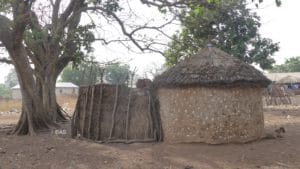
The NGOs themselves and various organizations that deal locally with these camps, when organizing awareness-raising activities within the communities, avoid using the term superstition precisely in order not to stand in opposition to local beliefs and traditions. “It is not fair to beat elderly women” this is the main message when organizing confrontations within the communities of origin of these women. “We have to go step by step, we can’t do otherwise“, says Daniel Ngota of the Witch Hunt Victims Empowerment Project.
And so the superstition remains unaltered hoping to pass the message that will at least prevent physical violence on these women. The psychological violence, the pain and the abandonment remain. “This is a real violation of human rights“, explains Lamnatu Adam, director of the NGO Songtaba which in dagomba language means let’s help each other.
Many of these women are unable to overcome the humiliation they have endured, they cannot forget how they were treated and in addition to the material loss of a slightly more comfortable life, they are affected by the distance from their children and grandchildren.
These are psychologically distressed women and without any adequate support to overcome the trauma to which they have been subjected.
The Ghana Health Service believes that it is under no obligation to have a psychological approach, counselings or treatments. And there is no effort in this regard. After all, this is considered a spiritual issue, not a social concern.
continues the director of the NGO “Not very few women manifest suicidal thoughts. Many tell us: I wish I wasn’t born, I wish I could just end my life. We shouldn’t underestimate these words. They are suffering people”.
But the prostration of these women is also caused by the extreme poverty in which they are forced to live. The lucky ones receive a visit from one of their children from time to time (and therefore a little money, food, soap). Others survive with what is given to them by the chief or organizations that have programs within the camps. Some are part of LEAP, a government program to combat poverty. Others work in the fields in the nearest villages or other small businesses. But they are old, often ill, and for many it is impossible to work.
Skipping meals is normal, meals consisting almost exclusively of corn, no protein. To worsen the condition of these women also the absence of those volunteers, for example doctors, who periodically came to these camps to screen, provide medicines or bring small reliefs.
The pandemic has consequences here too. Today fewer than a thousand women are housed in the various camps, about 220 have been repatriated in ten years, but others – although it would seem to a lesser extent than in the past – keep coming. Most of them are destined to die and be buried here, far from home. “When we have the contact details of the children, we notify them, but not everyone is willing to come and take their mother to bury her at home”, says Lamnatu Adam.
Yet in these places a strong feeling of solidarity remains. Being together, “sharing the same fate” as some of them told us, helps to build a community. In the same camp there are women who come from different villages and ethnic groups, who speak different languages, yet they manage to understand each other, to find reasons to laugh, to ease their morale.
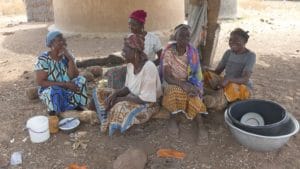
The saddest element of these places (albeit of great help and comfort for these women) is the presence of children or very young people (more often girls). They are the children of the women accused of witchcraft or grandchildren sent by the family to look after them. Some go to school, many don’t. A generation on which falls the stigma of the mother, of the aunt, of the grandmother. A stigma from which it is difficult to break free – even when the gods, at the end of the ritual ceremonies, say that you no longer have powers, that you can no longer harm anyone.
In reality, at stake are the social and power structures, which put women, elderly women, women without economic means, on the lowest rung of a highly hierarchical social ladder. A hierarchy made up of men, men who own the land, men who decide the life of women. And of chiefs who, as much as they take charge of the life of the “witches” and protect it, continue to find it normal that there are women accused of invisible crimes. But, we were saying, it is a complex phenomenon, where any judgment risks neglecting a part of reality. Or being able to see it only through your own lens.
[In the photo gallery below we give voice to the women we met in the four camps we visited with the NGO Songtaba and the Witch Hunt Victims Empowerment Project. In parentheses, the years of stay in the camp declared by the women interviewed. All photos are by the author of the report.]
[Translation by Abdoulaye Coumbassa from the original article by Antonella Sinopoli]

